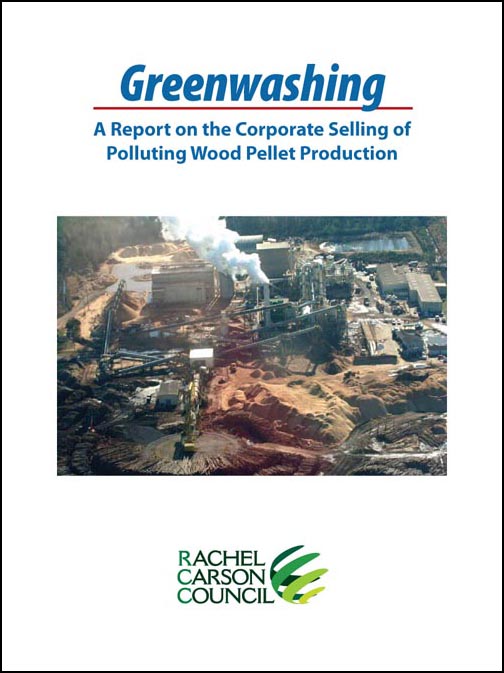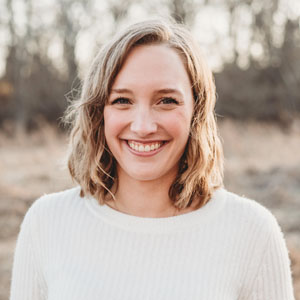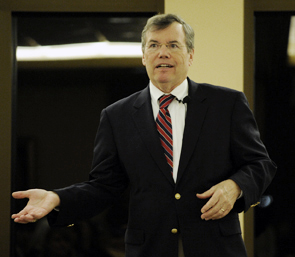 | | | As I perused the Rachel Carson Council website for news, I saw again a quote from Rachel Carson that has always stuck with me… “But man is a part of nature, and his war against nature is inevitably a war against himself.” As the year heads to a close and I think of the past eleven months, I am met with a flood of emotions — fear, sadness, happiness and enthusiasm.  2023 has been tough. From floods, fires, high intensity rain events, record heat and more, the world feels as if it is ending. With studies on how biomass loss in tropical forests could result in increased carbon emissions, how the Canadian wildfires impacted health of residents hundreds of miles away, and RCC’s new report, Greenwashing, on how corporations have sold policy makers on polluting and climate-destroying wood pellet production, the world can feel heavy. 2023 has been tough. From floods, fires, high intensity rain events, record heat and more, the world feels as if it is ending. With studies on how biomass loss in tropical forests could result in increased carbon emissions, how the Canadian wildfires impacted health of residents hundreds of miles away, and RCC’s new report, Greenwashing, on how corporations have sold policy makers on polluting and climate-destroying wood pellet production, the world can feel heavy.
Yet, I retain hope. Through working with RCC’s National Environmental Leadership Fellows, and news from campuses across the United States, I am plugged into how universities are helping to address the climate crisis. In Yale’s e360 post, an article on Ecosystems as Infrastructure shows why we have to stop looking at infrastructure as a way to stop nature, but rather as a way to include nature within our ecosystems. Kate Orff, MacArthur Genius Award winner notes, “We’ve ‘made’ the world what it is already, so now we need to take a very, very strong hand in the remaking. … A big part of climate adaptation may simply be unbuilding what we’ve already built. Such building or unbuilding is easily seen on campuses across the U.S.. VCU has opened a free store where students, staff and faculty are able to take home no-cost goods donated to reduce waste sent to the landfill. American University took materials used in demolition of one of its buildings to use in the construction of a tunnel on campus. Virginia Tech has been working to turn its campuses into living laboratories for climate research. And despite the current assaults on campus speech, colleges and universities also are actively engaging students, staff and faculty in advocacy and action against the climate crisis. In our lead story, RCC National Advisory Council member, science author and activist Sandra Steingraber calls on Miami University to consider civil disobedience on behalf of the planet and its people. Steingraber, who has been called a new Rachel Carson, will be followed in March by yet another urgent summons to engagement and action from RCC President & CEO, Dr. Bob Musil. And beyond hope, I feel enthusiasm about the voices of our RCC Fellows as they speak out about their work and their vision for a more sustainable and just world. This month’s RCC Fellows Speak Out section offers a generous sample of what the next generation of environmental leaders cares about and acts upon. And so, I am excited to see what the year ahead will bring and look forward to continuously engaging with RCC’s fellows and supporters to encourage action, and to fight for the world we all love so much. Mackenzie Bodman, Associate Director, Civic and Campus Engagement. | | | | | | | |  Mackenzie Bodman is the Associate Director of Civic and Campus Engagement for the Rachel Carson Council. An advocate for environmental justice, climate change and policy, Mackenzie works to combine science, justice, and policy to advocate for imaginative solutions to environmental challenges. Mackenzie Bodman is the Associate Director of Civic and Campus Engagement for the Rachel Carson Council. An advocate for environmental justice, climate change and policy, Mackenzie works to combine science, justice, and policy to advocate for imaginative solutions to environmental challenges. | | | | | | Biologist and Author Sandra Steingraber Talks Rachel Carson and Writing During the Modern Climate Crisis Introduced as the “new Rachel Carson,” the biologist, writer and activist Sandra Steingraber spoke as part of Miami University’s Environmental Justice John W. Altman lecture series. Steingraber devoted her talk to tracing the themes of the current climate crisis and how to respond to them. A master of narrative herself, Steingraber invoked the audience to imagine the state of our planet as “a tree with a double trunk,” with one side representing the pollution crisis and the other the climate crisis. | | | | | | | | Ecosystems as Infrastructure: A New Way of Looking at Climate Resilience Landscape architect Kate Orff works on rebuilding natural systems to help communities and cities reduce their climate risks. Places with interwoven ecological systems, she says, are more resilient and better able both to respond to emergencies and adapt for the future. When people think of landscape architecture, small-scale recreational spaces like urban parks, gardens, and golf courses may come to mind. MacArthur “Genius Award” winner Kate Orff has a grander and more ecologically ambitious vision. | | | | | | | | Biomass Loss in Tropical Forests Could Result in Increased Carbon Emissions A climate change-induced loss in carbon-storing tropical forest biomass could result in accelerated global warming, according to a study by Paulo Brando, associate professor of ecosystem carbon capture, and Maria del Rosario Uribe, YSE postdoctoral associate. Tropical ecosystems store over half the world’s above-ground carbon in their biomass, which includes vines, trunks, and leaves. A decrease in biomass reduces the capacity of these ecosystems to capture and store carbon. | | | | | | | | Climate Action Living Laboratory Addresses Sustainability Challenges Fueled by a passion to tackle climate change, Virginia Tech faculty, staff, and students are continuing efforts to integrate the 2020 Climate Action Commitment into the university’s educational mission and engage more students in sustainability-focused experiential learning opportunities through an initiative known as the Climate Action Living Laboratory. Highlighted in the Climate Action Commitment’s goals, the Climate Action Living Laboratory (CALL) tasks the university with turning its campuses into living laboratories for climate research. | | | | | | | | How Cataclysmic Events Have Shaped the Environment and Art Imagine a world where dust fills the air, temperatures are freezing, and the sky is the color of flames. It’s no horror film — this is a realistic picture of the aftermath of major volcanic eruptions. As explained by Jessica Whiteside, chair of San Diego State University’s Earth and Environmental Sciences department, these eruptions may have even influenced literary and artistic works from “Frankenstein” to “The Scream,” pieces that reflect the inextricable bond between humans and the environment. | | | | | | | | Liu Again Recognized as Global Top Researcher Jianguo "Jack" Liu, director of the Center for Systems Integration and Sustainability, has been named to the “2023 Highly Cited Researchers” list, a ranking organized annually by Clarivate Analytics. Jianguo "Jack" Liu, Rachel Carson Chair in Sustainability in the Department of Fisheries and Wildlife, is one of five researchers and professors from Michigan State University recognized in the “2023 Highly Cited Researchers” list, a ranking organized annually by Clarivate Analytics. | | | | | | | | Dorceta Taylor Highlighted in National Portrait Gallery Exhibit Dorceta Taylor ’85 MFS, ’91 PhD, senior associate dean of diversity, equity, and inclusion and professor of environmental justice, will be among more than 25 U.S. environmental leaders featured in an exhibit at the National Portrait Gallery that traces the history of the environmental movement from early 20th century conservationism to present-day action on environmental justice, biodiversity, and climate. | | | | | | | | | | A Case for Play A six-foot wave rose out of the Pacific glass, sparkling blue against the bruised pink after-light of the October sunset. I had a half-second to gawk in awe (and a smidge of fear) before I took a deep breath and flipped my surfboard, hanging on to the rails from below like an upturned turtle. The turbulent whitewater spun me twice and yanked me back upright. I shook the water from my ears and paddled out to the lineup. It was a fairly crowded sunset session, so I did my best to dodge dozens of neoprene-clad arms and legs that came flailing my way. | | | | | | | | The Room Where It Happens: Unlocking the Power of Citizen Lobbying to Fight Fossil Fuels When I first heard the term “lobbyist” in a high school government class, I instantly pictured older men in suits, roaming the halls of Congress with briefcases and nefarious intentions. It seemed that such people always worked for companies or industries trying to have undue influence over our congressional representatives, coaxing them into passing pro-industry or polluting policies. | | | | | | | | Hydrogen Hub, What’s That?: Americans Are Being Left Out of the Hydrogen Conversation. According to a recent survey conducted by Clean Hydrogen Partnership, of all the types of clean energy, people are least familiar with hydrogen. This poll, among others, has highlighted an important problem: despite hydrogen being a core tenant of the Biden administration's clean energy plan, many people have no idea what it is. And, for those who have heard of it, hydrogen is commonly associated with explosions or the Hindenburg disaster. | | | | | | | | The Ever-More-Corporate University Most academics have become inured to the American university’s slide toward complete corporatization. Despite the Biden administration’s cancellation of $127 billion in student-loan debt, the average individual burden for those with such debt hovers at around $30,000. Payments, which had been frozen for three years, restarted in October. Recent labor victories at Rutgers and the University of California notwithstanding, the casualization of academic workers is omnipresent. According to the AAUP, faculty wages have | | | | | | | | Panel: Erasing Black History Threatens to Harm Black Community, Students, and Nation's Future The exclusion and omission of Black history threatens to harm not just the Black community at large but also students and the very future of the nation, experts said during a Nov. 14 panel. The panel – part of the Congressional Black Caucus Foundation’s larger National Racial Equity Initiative for Social Justice (NREI) Summit – brought together experts to discuss contemporary attacks against the inclusion of Black history in societal awareness and education. | | | | | | | | Canadian Wildfires Impacted Health of Residents Hundreds of Miles Away This summer's record-setting wildfires in Canada caused unhealthy air quality in New York City and increased the amount of asthma-related emergency room visits, a new Yale study published in the Journal of the American Medical Association found. Previous studies on wildfire have mostly focused on the impact of populations residing nearby. The Yale study found that emergency department visits in New York City related to asthma syndrome increased by nearly 44% during a three-day wildfire smoke wave from the Canadian fires that were hundreds of miles away. | | | | | | | | St. Lawrence Alum Powers Campus Climate Efforts with an Electric Gift A generous gift from Class of 1964 alum Harvey Meer has tripled the number of electric vehicle charging stations on campus, supports St. Lawrence’s sustainability goals, and furthers the University’s commitment to environmental stewardship. Back when he was a student, Meer cruised around campus in a Chevrolet Corvair, a gas-guzzler he paid around 30 cents per gallon to fill. | | | | | | | | A Bright Idea: Reducing Energy Through Material Reuse AU reduces waste by reusing materials from demolition during recent tunnel renovation. This past summer’s construction projects in the Tunnel resulted in new and improved retail options, as well as an opportunity to support American University’s commitment to sustainability. One such opportunity was the repurposing of materials left from the demolition and relocation of the former campus bookstore in Butler Pavilion to its new location in the former Eagle’s Nest space in the Tunnel. | | | | | | | | VCU Free Store Reopens in New Space With No-cost Goods and a ‘thrift store vibe’ From housewares to school supplies, the service from VCU Sustainability supports students while diverting items from the waste stream. Blenders and bowls and wall art, oh my! These are just a few of the things Virginia Commonwealth University students can get for no cost at the Free Store, which opens in a new space on Oct. 25. | | | | | | | | RCC prides itself on its National Campus Network of 66 colleges and universities. We are working to engage faculty members, students, and administrators in our efforts for a more just and sustainable world. With our growing fellowship program, our presence on campuses across the country has never been greater. Contact RCC today to bring our staff to your campus for lectures, workshops, or meetings to help find the best ways to engage your faculty and students in the efforts against climate change, environmental justice, and the work of the Rachel Carson Council. Campus Visits with RCC President, Dr. Robert K. Musil  RCC President & CEO, Dr. Robert K. Musil, a national leader in climate change, environmental justice and health is again available to book for in-person campus speaking events! Musil has been called “informative, challenging and inspirational all at once.” He is “motivational” with “intellectual depth” and “extraordinary impact.” RCC President & CEO, Dr. Robert K. Musil, a national leader in climate change, environmental justice and health is again available to book for in-person campus speaking events! Musil has been called “informative, challenging and inspirational all at once.” He is “motivational” with “intellectual depth” and “extraordinary impact.”
Dr. Musil is available for campus lectures and visits involving classes, meetings with campus and community groups, consultations with faculty and administrators, or for Earth Day, Commencement, and other special events. Stays range from one to three days. Reduced fees are in place for 2023-2024 and can be designed to meet reduced budgets. To arrange a campus visit with Dr. Musil, contact the RCC President’s Office at office@rachelcarsoncouncil.org or call 301-214-2400. The RCC also offers talks, classes, and workshops on student engagement, activism, sustainability, and the RCC Fellowship program with, Director of Policy and Programs, Maya Cohn, Associate Director of Civic and Campus Engagement, Mackenzie Bodman, Associate Director of Communications, Claudia Steiner. To arrange, contact Associate Director of Civic and Campus Engagement, Mackenzie Bodman. | | | | | | | |  The Rachel Carson Council Depends on Tax-deductible Gifts From Concerned Individuals Like You. Please Help If You can. The Rachel Carson Council Depends on Tax-deductible Gifts From Concerned Individuals Like You. Please Help If You can. | | | |  Sign Up Here to Receive the RCC E-News and Other RCC Newsletters, Information and Alerts. Sign Up Here to Receive the RCC E-News and Other RCC Newsletters, Information and Alerts. | | | | | | | | | | | |